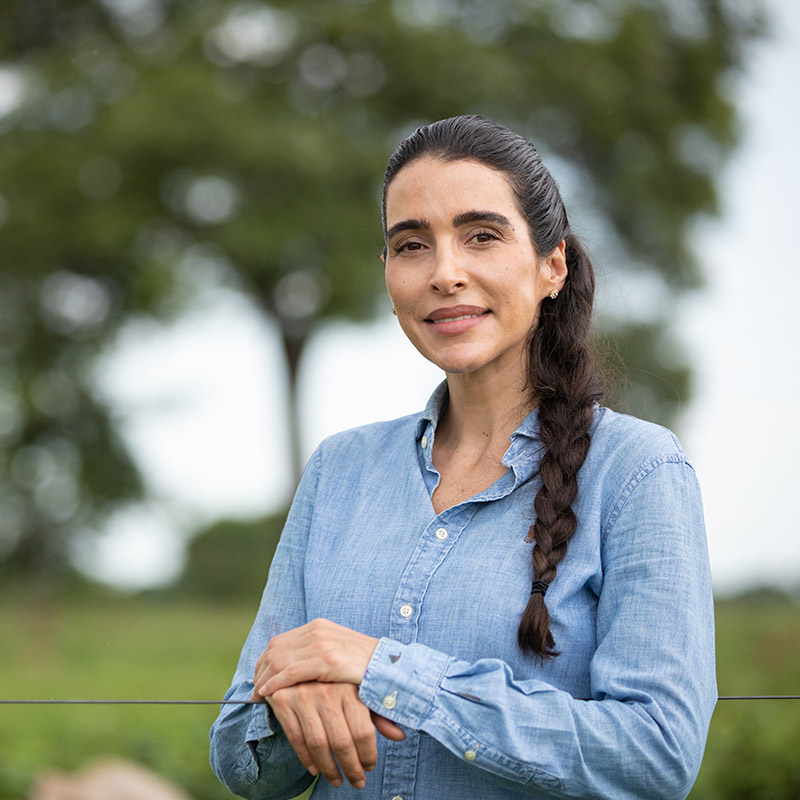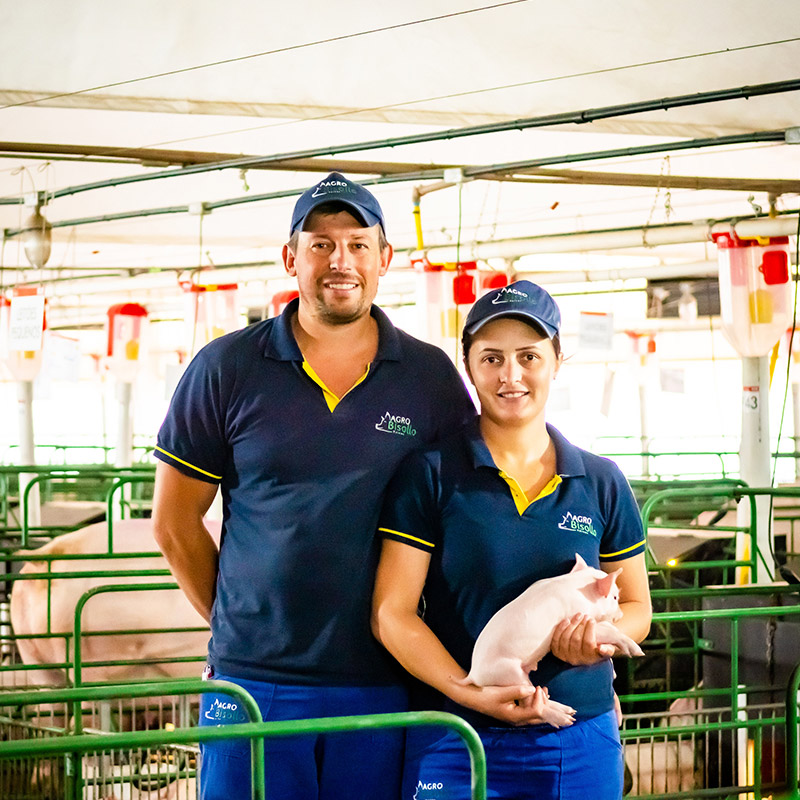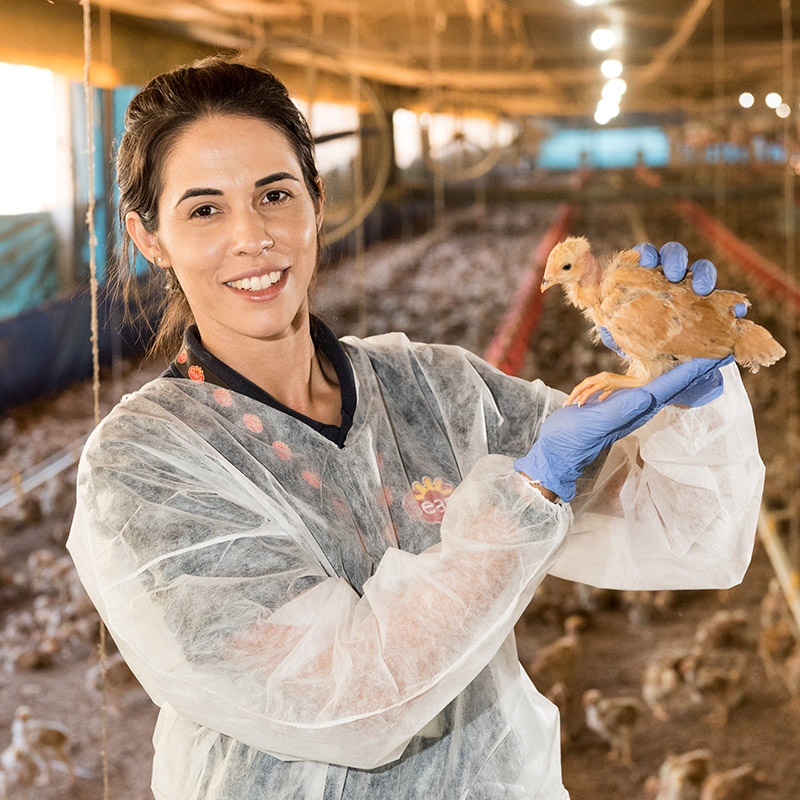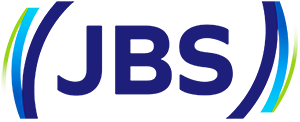Relationship with Supliers
JBS understands that its relationship with suppliers is essential and relevant to the prosperity of the value chain.
That is why the Company developed a series of actions to build closer relationships with its stakeholders that are based on confidence, respect, ethics and transparency.
With a regular dialog with its suppliers, especially in relation to matters related to respecting human rights and national and local labor laws, JBS has been a signatory of the National Pact to Eradicate Slave Labour since 2007, and has been a member of the Institute for the National Pact to Eradicate Slave Labour (InPACTO) since 2014.
JBS works alongside the producers, offering technical and management support, combining sustainability and preservation of the suppliers' businesses.

Cattle
Among JBS' initiatives with cattle suppliers are:
Araguaia Herd (Liga do Araguaia) - which promotes the development of sustainable livestock raising in the Médio Vale do Araguaia region, in Mato Grosso, one of the main cattle-producing regions in the country. In partnership with the Araguaia League, whose members include around 60 livestock producers in the region, JBS offers technical support from consultants specialized in pasture lands management, ensuring better productivity in environmentally regulated areas and greater profitability for producers, an action that contributes to the net reduction in greenhouse gas emissions.
Grade 10 Farm (Fazenda Nota 10) - which offers training for high-performance management, allowing the results of beef cattle farms in Brazil to be maximized. Developed by the Company in partnership with the Instituto Inttegra, the program is aimed at livestock producers throughout the country.
Social Fuel Seal (Selo Biocombústivel Social) - Throughout 2020, 19,056 head of cattle were acquired from family farmers under the Social Fuel Seal, 60% more than in 2019. The initiative is a partnership between Friboi and JBS Biodiesel in the region of São Miguel do Guaporé (RO) and another 17 municipalities in Rondônia, whose work involves training small livestock farmers in pasture improvement, property management, herd stewardship and genetic enhancement with a guarantee of purchase by the company. The total invoicing of the 338 families exceeded the mark of R$ 38,5 million for the year. For 2021, the expectation is that around 30,000 head will be purchased, involving over 400 families.
The Social Fuel Seal was awarded exclusively to farmers as an encouragement for developing and generating biodiesel from oleaginous sources like soy. As bovine tallow, a subproduct of beef processing, is the second most important source of raw materials for manufacturing biodiesel in Brazil, the inclusion of the livestock farming chain in the National Program for the Production and Use of Biodiesel (PNPB) could further stimulate the economy.
The Social Fuel Seal Program (SCS) of the Ministry of Agriculture, Livestock Farming and Supply (MAPA) is linked to the National Program for the Production and Use of Biodiesel (PNPB). Support for the project qualified JBS Biodiesel to receive the Social Fuel Seal from the Brazilian government. The two JBS Biodiesel units hold the certification.
QUALITY RANKING - The tool adopted in Brazil joins raw material quality management and communication with the breeder, combining technical parameters such as weight, age of animal, fat finishing and gender with a policy on bonus for quality.
CONNECTION MANAGEMENT - Programa brasileiro voltado a aprimorar as habilidades gerenciais dos pecuaristas de porte médio, responsáveis pelo fornecimento entre 300 e 2.000 animais por ano. Oferece um conjunto de ferramentas de apoio ao aumento da eficiência de todos os elos da cadeia produtiva da carne bovina, desde o pecuarista fornecedor até o consumidor final.
Portal Conexão Friboi - Brazilian program targeted at enhancing the managerial skills from mid-sized livestock breeders, responsible for supplying 300 to 2,000 animals per year. It offers a set of tools to support the increase in efficiency from all links of the beef production chain, from the livestock breeder to the end consumer.
CONEXÃO FRIBOI WEBSITE - The website Conexão Friboi has the goal of improving the Company’s relationship with livestock breeders, suppliers or not to JBS in Brazil. The tool promotes discussions, disseminates relevant contents, and helps the producers improve their business.
GTPS - support for implementing the GIPS - JBS, together with the GTPS and the NGO Solidaridad, is supporting the implementation of the GIPS in the state of Pará. The Sustainable Livestock Farming Indicators Handbook (GIPS), developed by the GTPS, aims to help producers evaluate the level of sustainability of their property, creating a self-assessment on a range of topics and a guidance plan for evolving in the development of sustainable livestock farming. In 2021, the GTPS hired two temporary technicians to visit suppliers of JBS in the municipalities of Marabá and Novo Repartimento (PA) and other surrounding towns and cities to help them fill out the GIPS.
Poultry and Pork
The quality assurance of the production chain is based on the differentiated relationship between Seara and its 9,000 integrated suppliers, who produce exclusively for the Company. It is a partnership in which the breeders receive all the inputs – 1-day-old chicks and piglets, 100% of the feed, technical assistance and freight, which represent 93% of the costs.
The producer is responsible for labor, animal care, electricity, facilities, wood shavings and firewood, equivalent to 7% of the costs. In this way, the Company guarantees that the purchase of 100% of the products complies with its purchasing policy.
In order to strengthen the relationship between integrated producers and the Company, in 2014 Seara created the SuperAgro award,whose objectives are: to reinforce the relationship of commitment and trust; motivate and retain current producers and attract new producers; value the integration system with the community; and recognize producers with the best results and management practices.


These producers are managed by about 500 professionals who visit theproperties periodically and who, in addition to technical assistance in the management of the breeding and sanitation of poultry and pork, provide technical support during and after construction and improvements to the facilities, train and advise the producers in managing the production cost and cash flow of the activity, seeking reduction opportunities and good practices to increase performance, productivity, animal welfare and profitability of the activity. In this way, the Company helps to increase the income of its integrated producers and, consequently, contributes to the economic development of the region.
Annually, Seara evaluates all its members through the Sustainability Index, which measures from the most basic to the most advanced practices in environmental, economic and social aspects.
The results achieved in the 2020 assessment, the first year of application, showed an average score of 71% considering all dimensions assessed.
The Integration system with Seara supports and encourages investment in the modernization and adoption of sustainable technologies that offer the activity of cost reduction with increased efficiency and increased productivity, as well as financially encouraging the construction of new projects, with policies of remuneration customized for each animal category.
The constant technological evolution of this system took an important step in 2020, when Seara launched the Granja 4.0 project, which is expected to automate 100% of operations management in the short term.
Programs and Content
Friboi and Seara also have two programs with content aimed at livestock farmers and integrated producers. Broadcasted by Canal Rural, the programs Giro do Boi and Ligados & Integrados, respectively, remain a reference for industry professionals, in addition to helping to strengthen JBS's relationship and dialogue with this audience.
